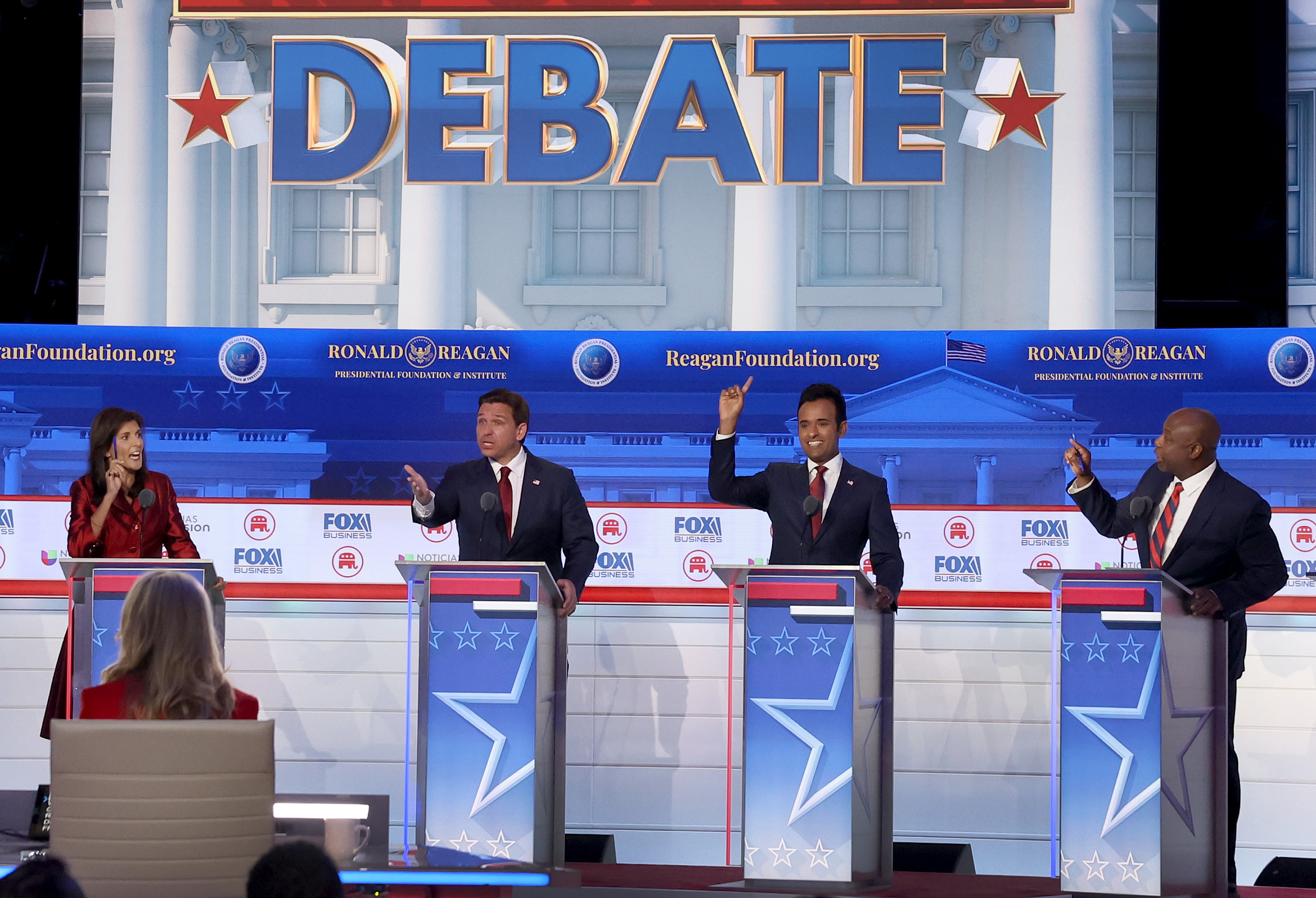Historical Context and Significance: September Presidential Debate

The September presidential debates in the United States hold a significant place in the political landscape, shaping the narrative and influencing public perception of the candidates. These debates, occurring before the general election, provide a critical platform for voters to assess the candidates’ positions, personalities, and qualifications.
The historical significance of September debates lies in their ability to set the stage for the entire election cycle. These debates often mark the first major public confrontations between the candidates, allowing voters to get a glimpse of their leadership styles and policy stances.
Key Moments and Controversies
The September debates have witnessed numerous pivotal moments and controversies that have left a lasting impact on American politics.
- 1960 Nixon-Kennedy Debate: This was the first televised presidential debate, and it had a profound impact on the outcome of the election. John F. Kennedy’s appearance and demeanor on television were seen as more appealing to voters than Richard Nixon’s, who appeared pale and nervous. This debate marked a turning point in the use of television in political campaigns.
- 1980 Carter-Reagan Debate: During this debate, Ronald Reagan famously challenged President Jimmy Carter’s leadership with the question, “Are you better off now than you were four years ago?” This question resonated with voters who were struggling with economic problems, and it helped to propel Reagan to victory.
- 2016 Trump-Clinton Debate: This debate was marked by personal attacks and a lack of substantive policy discussion. Donald Trump’s aggressive style and willingness to make inflammatory statements captivated the attention of many voters, while Hillary Clinton’s more measured approach seemed to alienate some. This debate highlighted the increasing polarization of American politics and the role of social media in shaping public opinion.
Impact on Public Perception, September presidential debate
September debates can significantly shape public perception of the candidates by:
- Introducing Candidates to a Wider Audience: The debates provide a platform for candidates to introduce themselves and their policy positions to a wider audience, especially those who may not be familiar with their backgrounds or platforms.
- Highlighting Key Issues: The debates often focus on key issues that are important to voters, allowing them to see how the candidates plan to address these issues.
- Revealing Candidate Strengths and Weaknesses: The debates can reveal the candidates’ strengths and weaknesses, both in terms of their policy positions and their ability to communicate effectively.
- Setting the Tone for the Campaign: The tone and tenor of the September debates can set the tone for the entire campaign, influencing the public’s perception of the candidates and the overall political climate.
The September presidential debate was a whirlwind of heated exchanges, but it was a different kind of storm that truly brought things to a standstill. Imagine the chaos of a ground stop at NYC airports, ground stop nyc airports , with planes grounded and passengers stranded – that’s what the debate felt like for the candidates.
They were stuck, unable to escape the intense scrutiny and the pressure to deliver a knockout punch.
The September presidential debate was a pivotal moment, showcasing the candidates’ stances on key issues. While the political landscape was heating up, nature was also brewing a storm of its own. Tropical Storm Debby brought heavy rains and strong winds to the coast, reminding us of the power of nature amidst the political whirlwind.
The debate, however, continued to dominate headlines, leaving a lasting impact on the election cycle.
